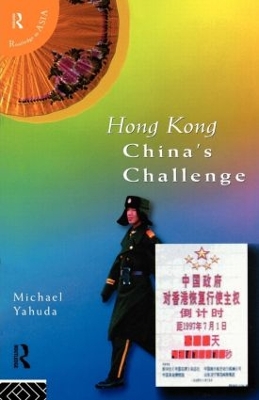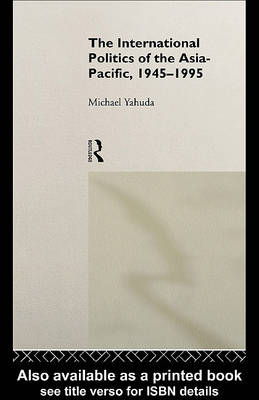Routledge in Asia
3 total works
The return of Hong Kong to China in July 1997 has the potential to benefit China's rapidly expanding economy. China's handling of the transition will have enormous implications for her international standing. This is the first study to analyse the serious problems and real opportunities that the return of the colony poses to China's international status.
Examining the relationships between Greater China, Hong Kong and the West, Hong Kong: China's Challenge explores the challenges that Chinese policy makers face up to 1997 and beyond: the clash of political cultures; handling problematic negotiations; dealing with conflicting economic interests. The book concludes by suggesting that a laissez faire approach to the lucrative Hong Kong markets will ensure that China harnesses the full political and economic benefits of sovereignty over the colony.
* analysis of the economic crisis and the potential implications worldwide of East Asian economic recovery
* a chapter on the emergence of East Asia as a significant force in world affairs, focusing on the role of lesser powers such as Indonesia and Malaysia
* chapters considering prospects post-2000 and competing frameworks for security in the wake of nuclear tension between India and Pakistan
* the strengths and weaknesses of US hegemony in the new world order.
This fully updated and revised edition of Michael Yahuda's extremely successful textbook introduces students to the international politics of the Asia Pacific region since 1945. Divided into three parts, the first presents a chronological overview of developments since 1945, the new second part looks at the post-cold war period, while the third focuses on the policies of the US, the USSR/Russia, China and Japan in the region. Yahuda analyses politics in terms of global, regional, and local trends, combining narrative with analysis. This new edition features:
* analysis of the economic crisis and the potential implications worldwide of East Asian economic recovery
* a chapter on the emergence of East Asia as a significant force in world affairs, focusing on the role of lesser powers such as Indonesia and Malaysia
* chapters considering prospects post-2000 and competing frameworks for security in the wake of nuclear tension between India and Pakistan
* the strengths and weaknesses of US hegemony in the new world order.


